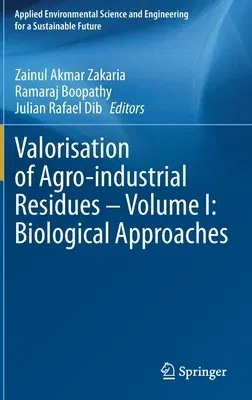Agriculture and industry are the two most important economic sectors for
various countries around the globe, providing millions of jobs as well
as being the main source of income for these countries. Nevertheless,
with the increasing demand for agricultural and industrial produce, huge
amounts of waste are also being produced. Without proper management,
this waste (both liquid and solid) poses a serious threat to overall
environmental quality, mainly due to its toxicity and slow degradation
processes. Current approaches are effective but would normally require
huge capital investments, are labour intensive and generate potential
hazardous by-products. As such, there is a need for alternative
approaches that are cheaper, easier-to-handle and have a minimum
potential impact on environmental quality.
This book presents up-to-date approaches using biological techniques to
manage the abundance of waste generated from agricultural and industrial
activities. It discusses techniques such as bioconversion,
biodegradation, biotransformation, and biomonitoring as well as the
utilization of these wastes. A number of chapters also include
individual case studies to enhance readers' understanding of the topics.
This comprehensive book is a useful resource for anyone involved in
agricultural and industrial waste management, green chemistry or
biotechnology. It is also recommended as a reference work for graduate
students and all agriculture and biotechnology libraries.

